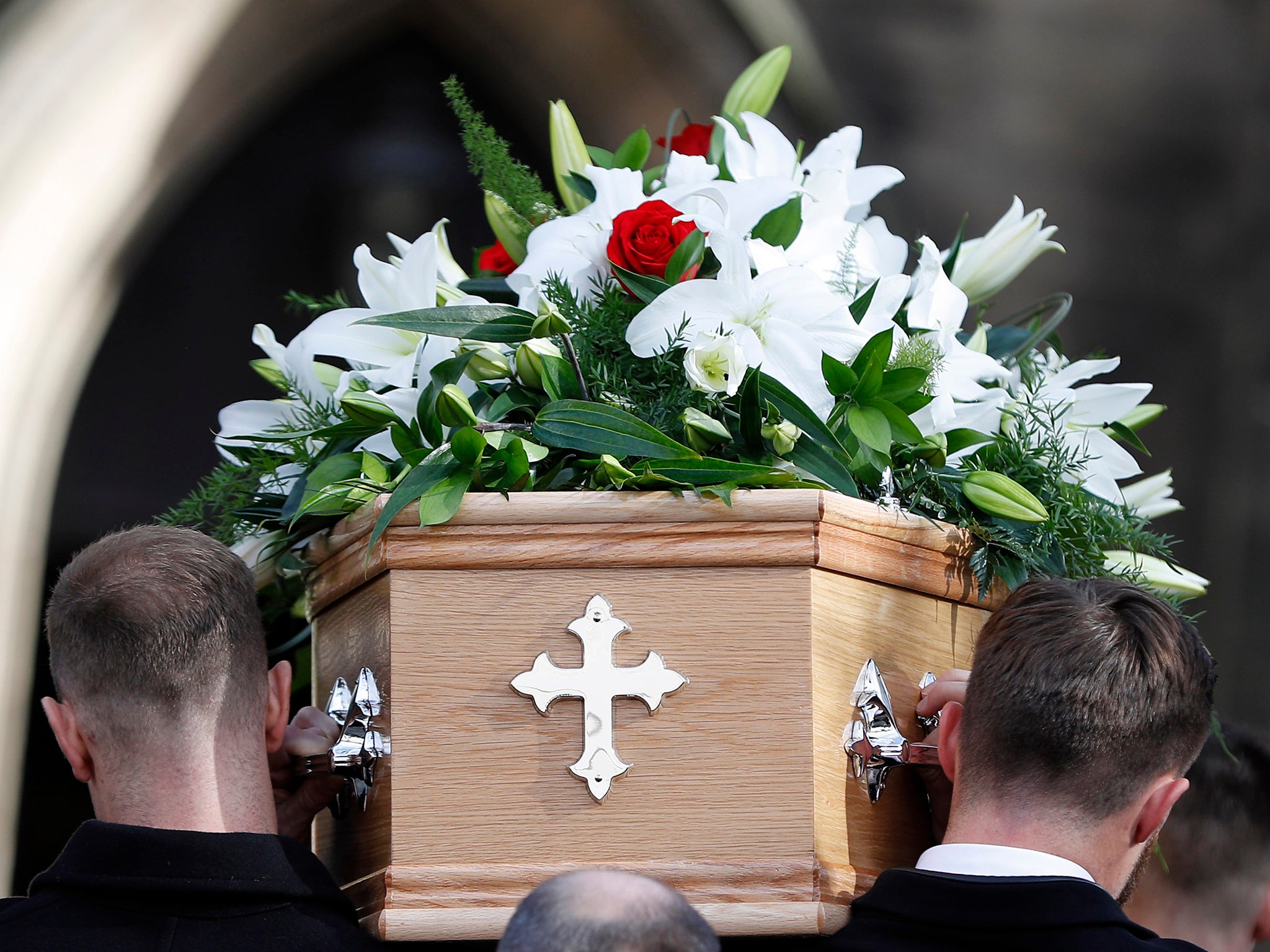Inheritance wait causes financial hardship for the bereaved
More than 8,000 estates remain unclaimed

In any normal year the onset of autumn and of damper, colder, darker days would prompt a cheery conversation about excess winter deaths just about now.
In 2020, as you know, things are different. It feels like we’ve been faced with excess deaths all year as the novel coronavirus makes its presence felt.
It has been shattering for those who have lost loved ones in the most surreal and stressful of circumstances, but sadly the challenges don’t end there.
Probate - the legal process of passing on assets after someone dies - is a long and often complex one that leaves heirs and other dependents facing long delays before receiving any assets that have been left to them.
Though the wait has decreased in length according to the latest figures from the Ministry of Justice, it still has the potential to cause significant financial hardship for some dependants having to deal with the stress of making payments such as mortgage obligations or energy bills for the deceased out of their own pockets. If dependants decide to delay these payments until an estate has been administered then they may have to pay interest or late payment penalties on them.
To lawfully distribute money or assets from an estate, the executor – the person named in someone’s will and tasked with ensuring their wishes are carried out – has to have a grant of probate. “Probate delays put a lot of heirs in a really tough spot financially,” Lynne Rowland, partner at Moore Kingston Smith, says.
“Dependants are having to choose between funding the costs of another home now or delay any payments and pick up a bigger bill further down the line due to any interest.
“Executors can be held personally liable for any payments made from an estate before the grant of probate is obtained, so they are often understandably reluctant to transfer funds to a beneficiary without the grant being in place."
A surge in probate applications made before a planned rise in fees last year, coupled with a move to digitize the application process, had already produced a large backlog before the pandemic came barreling over the horizon.
Get a free fractional share worth up to £100.
Capital at risk.
Terms and conditions apply.
ADVERTISEMENT
Get a free fractional share worth up to £100.
Capital at risk.
Terms and conditions apply.
ADVERTISEMENT
Coronavirus has made it harder to clear this backlog because many probate registry offices have been not working at full capacity due to staff absences and remote working practices.
If mistakes are then made by probate registries under pressure, such as getting the name of an executor and the value of an estate wrong on a grant, the estate cannot be distributed, though the move to online applications made by the executor is designed to reduce the number of mistakes in the future.
Rowland adds that the issue is so significant that some banks are allowing executors to access cash from the deceased’s bank account without a grant of probate in order to pay bills.
“In some cases, banks are transferring amounts up to £100,000,” she says.
“While this shows flexibility on behalf of the banks, the executors are personally liable to the estate for these funds and in accepting the money they could expose themselves to significant personal financial liabilities.”
Separate research suggests almost a third of cases in the last 12 months have faced delays in closing or settling an estate.
Beneficiaries are remarkably difficult to track down and even when they are, proving their relationship with the deceased person causes problems for more than a quarter of cases, the survey from Direct Line Life Insurance reveals.
The executor themselves might also have passed away, delaying the handover of financial and other inheritances by as long as a year.
Probate lawyers report that they have seen a rise in these types of issues, especially increased difficulty tracking down beneficiaries, because families seeing each other less regularly, children and parents are more likely to take different surnames than in the past and, apparently, families now fall out with each other more often.
These problems are also causing a rise in the number of inheritances that are never claimed.
With more than 8,000 cases of unclaimed inheritance recorded in the UK as of September this year, including many that are decades old, that’s a rise of almost a fifth in the last 20 years.
Chloe Couper, business manager at Direct Line Life Insurance, said: “Organising probate can be a very stressful time for families and relatives who have lost a loved one. This situation can be exacerbated by issues which cause unnecessary delays to the process.
“This research highlights the need to discuss these complex issues with family members and for them to ensure that a will is written at an appropriate time, helping to reduce the likelihood of these issues arising.
“We would recommend that anyone going through this process checks their, or their loved one’s, life insurance policy, as they may be in a position to receive a lump sum which would help ensure legal fees and funeral costs are covered while any probate issues are resolved.”
Join our commenting forum
Join thought-provoking conversations, follow other Independent readers and see their replies
Comments

Bookmark popover
Removed from bookmarks